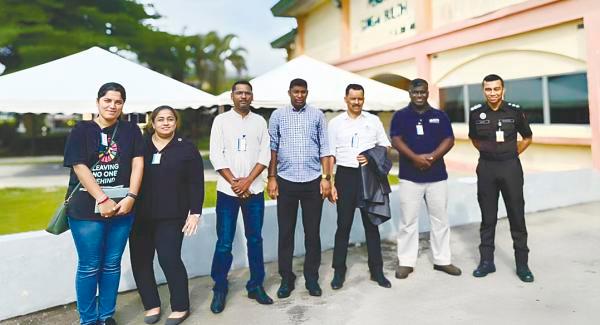ON Jan 20, a team from the All-Party Parliamentary Group Malaysia-Sustainable Development Goals (APPGM-SDG), accompanied by Prakash Kalivannan from the Malaysian Needy Association, seized the opportunity to explore the inner workings of the criminal justice system firsthand by visiting the Sungai Buloh prison.
The purpose was not only to satisfy our curiosity but to gain a deeper understanding of the complexities of incarceration and its impact on individuals and society.
The visit began with a rigorous security check. The prison, surrounded by towering walls topped with barbed wires, exuded a sense of confinement. The architectural layout, encompassing cell blocks and communal areas, revealed a purposeful design emphasising order and control.
The initiative involved the participation of 10 inmates and was aligned with the project titled “Opportunity to reduce inequality among ex-prisoners and near-release prisoners”.
The project is aimed to provide rehabilitation and skills development opportunities within correctional facilities for inmates.
It includes establishing fully equipped barber training programmes and providing incarcerated individuals the chance to acquire the art and skills of barbering.
Through comprehensive courses, inmates will receive hands-on training in haircutting, styling and grooming techniques.
The objective is to provide inmates with a valuable trade and instil a sense of responsibility and discipline.
The holistic approach to rehabilitation goes beyond vocational training, contributing to the overall well-being and self-esteem of prisoners. By promoting positive behavioural changes, it seeks to reduce recidivism.
The essence of any correctional system revolves around the individuals it houses. Conversations with inmates gave us a nuanced insight into their narratives – stories of regret, transformation and optimism for a brighter future.
Observing the human aspect of incarceration highlighted the intricate dynamics of justice, rehabilitation and the innate strength of the human spirit.
An eagerly awaited part of the visit was the chance to engage with inmates. These interactions occurred in a designated communal area under the watchful eye of officers.
The inmates shared their experiences, providing a glimpse into their lives within the prison walls. It was a humbling encounter witnessing the resilience of the inmates.
In an interview with one inmate, our eyes welled up with emotion as he said: “Participating in the project has been truly transformative during my six years of incarceration for a drug-related offence. This experience has broadened my perspective on rehabilitation.
“It is not just about serving time but about acquiring skills that facilitate reintegration into society. The certification I will receive will open doors to legitimate employment, enabling me to contribute positively to my community upon release.
“I am grateful for this opportunity, and I hope that more people will recognise the vital role of such initiatives in providing a pathway to rebuilding our lives through the project by APPGM-SDG”.
The project has kindled hope for a better future for inmates, who are resolute in utilising newfound skills to build a stable and fulfilling life.
Such programmes are paramount, offering individuals a chance to showcase their capacity for change, address the root causes of offences and break the cycle of reoffending. Ultimately, these initiatives will enable individuals to make amends for their past mistakes.
The visit also provided an insight into the effects of imprisonment on families. Emotional reunions witnessed on specified days for family visits underscored the devastating effects and psychological costs of separation on the lives of prisoners and their families.
It serves as a lesson that crime has far-reaching effects. The impact of sentencing on families and communities became apparent when we delved into the individual stories.
In addition, the prison management highlighted its dedication to the process of rehabilitation. It was clear that there were numerous therapy sessions, support groups and counselling programmes designed to deal with the underlying causes of criminal behaviour.
The emphasis on rehabilitation rather than punishment is a novel viewpoint that defies the popular perception of imprisonment.
In an interview with another inmate, we were pleased when he said: “The acceptance of my family members is still strong. Through my six years of incarceration for a drug-related offence, I have always wanted to be a person that the community and my family can depend on.
“This project will help me empower myself and offer me a successful pathway. I am grateful for this opportunity and would like to thank APPGM-SDG for giving me this chance.”
At the end of our visit, we understood the intricacies of the criminal justice system, which requires listening to a variety of stories, obstacles that were overcome and opportunities created for a transformative change that extended beyond the prison walls.
The visit highlighted the complex view of sentencing, exposing a system that is struggling to find a fine balance between holding people accountable for their actions and fostering an environment that promotes positive development.
Beyond the facade and heavily guarded entry, the prison revealed itself as a multifaceted organisation striving to integrate punishment with rehabilitation.
The writer is a project management officer with Community Farming Research at the APPGM-SDG Secretariat. APPGM-SDG is an independent body entrusted to deliver results for constituents while remaining focused on local issues and national priorities. Comments: letters@thesundaily.com









